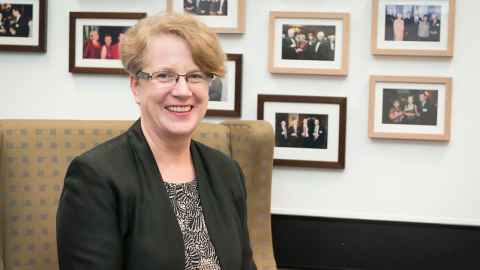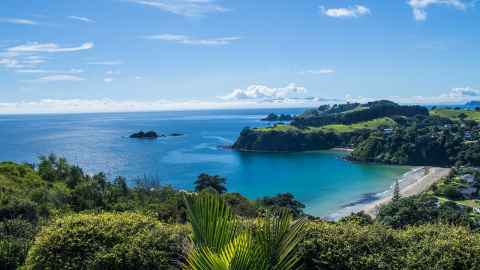Pene Mathew: from law dean to human rights leader
14 September 2023
Professor Pene Mathew, Dean of Law, has been appointed Human Rights Commissioner and President of the Australian Capital Territory Human Rights Commission.

Grappling with substantive human rights issues on a daily basis, and the prospect of making people’s lives better as a consequence, are key elements Law Dean Penelope Mathew is looking forward to in her new role as President and Human Rights Commissioner of the ACT Human Rights Commission.
Vice Chancellor Dawn Freshwater notes that Professor Mathew’s new role is an important and exciting one, which will see her working with human rights in a practical, impactful way for the benefit of residents of the Territory, the first Australian jurisdiction to adopt a Human Rights Act.
“I would like to acknowledge and thank Pene for her outstanding leadership of the Law Faculty over her tenure,” says Freshwater.
Professor Mathew, who has devoted her career to human rights, returns to her hometown of Canberra next month to take up the role.
The respected scholar knows the ACT well, having worked at the Human Rights Commission there as a legal and policy adviser between 2006 and 2008. In that role, she conducted an audit of the Territory’s remand centres and was frequently called upon to advise on human rights issues arising from legislative proposals. She also designed and delivered human rights education for public servants and the ACT community. In 2008, the ACT Government awarded her an International Women’s Day Award for her outstanding human rights and social justice contributions.
As an expert adviser on international refugee law, Mathew will also bring experience working in other human rights jurisdictions and engaging with the United Nations to her new position.
“My priorities include preparation for proposed additions to the Human Rights Act – the right to a healthy environment and a quick and accessible way for community members to complain about human rights abuses to the ACT Human Rights Commission.”
The ACT is a particularly innovative jurisdiction, she says. “It was the first to adopt a Human Rights Act and has continued innovating. The work on the right to a healthy environment will be really interesting.”

Despite her anticipation for the challenge that awaits, leaving Aotearoa New Zealand and the law faculty won’t be easy, says Professor Mathew.
“There are so many people in the law school I will miss dearly. I have some very quick-witted, good-humoured, hard-working academic and professional colleagues.”
Having the faculty enthusiastically endorse new programmes, including the forthcoming Juris Doctor, is a highlight of the Dean’s during her time leading the law school.
“I’m confident it will give the school an edge and provide an important option for students, both domestic and international.”
Hiring talented new staff has been a highlight too, says Mathew.
“We have had so many great people join the faculty during my tenure. I’m particularly proud that we have had more Māori and Pacific scholars join us and that consequently, we can offer more in the curriculum.”
During her time in the country, gaining some insight into te ao Māori and the Pacific has been a fascinating journey for the Dean, who highlights how far Australia is behind Aotearoa when it comes to the rights of Indigenous peoples.
“The fact that the courts in this country grapple with Tikanga Māori and that the Council of Legal Education (CLE) has mandated the teaching of Tikanga in the Law curriculum are examples of just how far ahead Aotearoa New Zealand is. I have gained knowledge from my time on the CLE and university discussions on mātauranga Māori that I will take with me.”

Aside from her new role, Mathew also looks forward to spending time with her son and catching up with old friends in Australia.
The warbling of Canberra’s magpies and the screech of cockatoos will replace the chatter of tui, the squeak of pīwakawaka, the heavy flapping of kererū, and the screech of kākā, who Mathew says enjoy visiting a large eucalyptus in her Waiheke garden.
“I will miss my garden and Palm Beach and the lovely people at the dairy and in my neighbourhood. I wonder, too, if I could get a regular delivery of some Waiheke wines …”
Media contact:
Sophie Boladeras, media adviser
M: 022 4600 388
E: sophie.boladeras@auckland.ac.nz